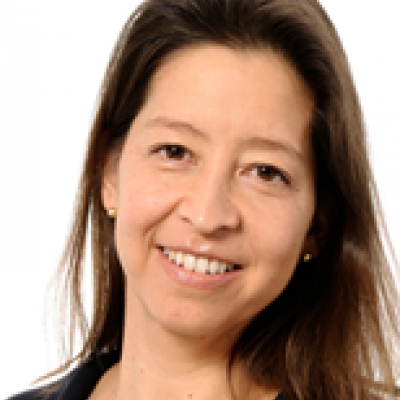Dr Estée Török Senior Program Officer
Organisation: Bill and Melinda Gates Foundation
- Clinician Scientist Fellowship
- 4

About me
Estée is a Clinical Scientist Fellow and Senior Program Officer at the Bill and Melinda Gates Foundation.
She specialises in Infectious Diseases and Medical Microbiology. She completed her PhD in Biological Sciences, looking at HIV-associated tuberculous meningitis and has since become involved in clinical research exploring translational microbial genomics.
Estée holds four positions in the UK: Senior Research Associate, University of Cambridge; Honorary Consultant in Infectious Diseases and Microbiology, Addenbrooke’s Hospital; Honorary Consultant Microbiologist, Public Health England; and Visiting Scientist, Welcome Trust Sanger Institute. She is also the Cambridge Principal Investigator (PI) for national and international studies of S. aureus bacteraemia.
Estée’s Clinical Scientist Fellowship project focuses on genome sequencing technology. She wants to take it from being used just for research and turn it into an everyday clinical diagnosis tool. She says it will benefit patients by improving their clinical management and should mean much quicker and more effective treatment of hospital infections.
Since 2011, Estée has been part of a research group in the Department of Medicine at the University of Cambridge. There they have been using bacterial whole-genome sequencing to investigate outbreaks of infection at Addenbrooke’s Hospital. Now Estée wants to see how it would work in everyday clinical practice.
'We’ve been using it in isolated cases, so we know it can be effective,' says Estée. 'The challenge is to see whether we can use it in real time, for example in an intensive care unit where we can monitor organisms, detect outbreaks as they happen, then intervene to stop them quickly.'
A lot can be gained from this sort of work. It will be important for helping to tackle the drug-resistant bacteria and infections that we see in hospital settings. Estée says: 'I also want to go one step further than we have so far and use the technology not only to diagnose the infection, but also get information about the organism’s antibiotic resistance profile. This is particularly important for multidrug-resistant organisms where treatment options may be limited.'
If the project succeeds it will improve hospital patients’ care. A greater, faster understanding of a patient’s infection will mean they can be treated more quickly and with the drug that targets each infection perfectly. It will ultimately help reduce the need for broad spectrum antibiotics and the risks that they involve.
Estée’s project will run for five years. She has a number of studies planned over the coming 2-3 years, building on the work she has already been involved in, and evaluation will follow. At the same time, she will be completing an economic evaluation to see whether it is cost-effective, as well as developing educational materials and guidance around policy.
Work with us
We look for talented and passionate individuals as everyone at the Health Foundation has an important role to play.
View current vacanciesThe Q community
Q is an initiative connecting people with improvement expertise across the UK.
Find out more

